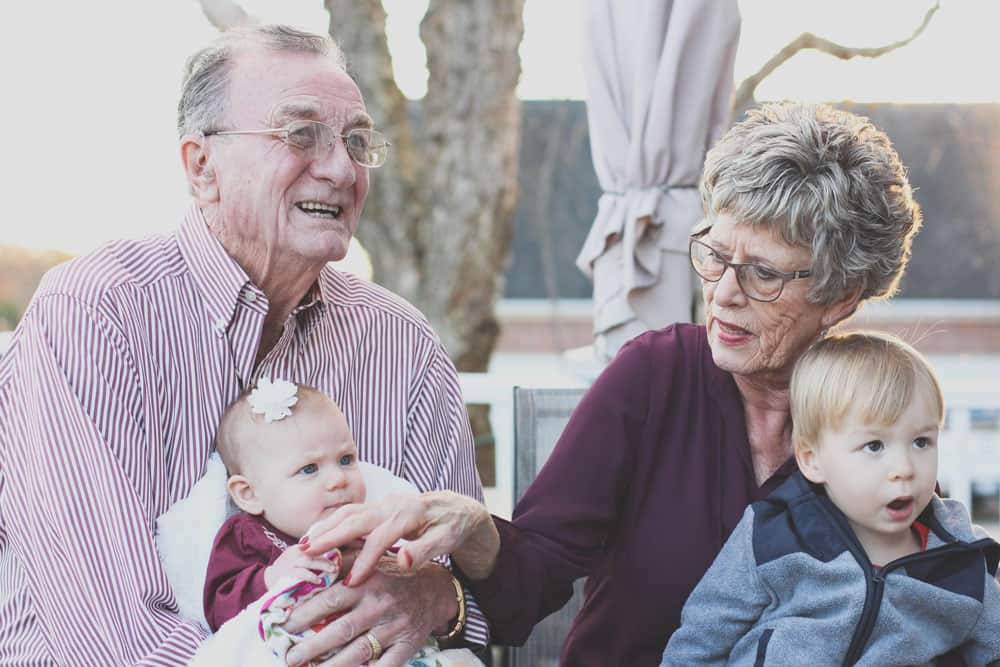Home Care Assistance Montreal is the only home care solution offering an innovative, science-based approach to aging. We elevate the standard of care for seniors everywhere. In “Care Diaries”, we feature heartfelt stories from Canadians telling their current life stories about the reality of caring for someone with Alzheimer’s.
Michel and I have been a couple for almost 20 years. He is a wonderful being, a dedicated and generous man. Everything he did had to be perfect. We both already had children of our own when we met, which is why we chose not to move in together.
Michel has Alzheimer’s. Early in the disease, things were going well. He had always been a good chef and he often invited me over for supper. After a while, he started having memory loss, but we were able to deal with it. But eventually, things started getting a little more difficult. It came to a point where he needed strict supervision to ensure his safety. It was impossible for me to be with him all the time, but he could not stay alone. One day, I found a glass container on a hot stove burner. I contacted his family and his children to let them know his state was getting worse.
At an advanced stage of the disease, it is important to determine who is going to be legally responsible for the affected person.
His children started to realize how difficult it was for me when I caught a virus and couldn’t take care of him anymore. They hired help a couple of hours a week, but it wasn’t enough.
His children finally found him a place in a senior residence, which is where he presently lives. His children and I have been visiting him there several times a week ever since.
When the time came to find a residence for Michel, we had to determine who was going to take on the legal responsibility for him. Who was going to make the decisions concerning his health care and his finance? Who was going to make sure he gets all the services he needs and that everything runs smoothly?
These are very important questions. It can be shared between several people. For example, one could be responsible for the person, and the other could manage the assets. Responsibility for the person includes all decisions concerning the well-being and the physical needs of the person. The list of decisions is long: health care, housing, hygiene and any decisions regarding comfort and living standards. While sharing the responsibility can make things easier, it can also be another source of problems when the decision makers are unable to come to an agreement. It often happens when the decision has a financial impact. At the end of the day, the person with most power is the one managing the assets, as he/she controls the purse strings.
As for me, I don’t have any legal responsibility with respect to Michel. His children are solely responsible, and they have all the decision-making power. I’m here for Michel all the same and I care very much for his well-being. Whenever I notice anything wrong, I notify his children and they take the necessary steps to address the issue.
I have been living in a isolated world and this is exactly what makes a loved one’s disease depressing.
My doctor was telling me to take care of myself. He said I should see a psychologist once a week. I called the Alzheimer Society of Montreal and they offered a counselling service. I started seeing a counsellor once a month and I joined a therapy group at my local CLSC for people over 60 to calm my anxiety. I also meditate and do yoga. All of this has been very helpful. My living standards allow me to go through difficulties, but had I been with no resources, it would have been a different story.
The Alzheimer Society of Montreal’s eight week support group mainly taught me that there are a lot of natural caregivers, especially women, stuck in a terrible situation. Some of them are going through hell with their partner who, for example, wake up screaming at night. I thought to myself Michel is an angel!
However, my life has been revolving around Michel’s disease for the past three years. Since he’s been living in the residence, I find myself alone for the first time in my life < trembling voice >. I left my parents’ home to get married and when I got divorced, my children stayed with me, so I was never alone. Then, I met Michel. Now, I must rebuild my life and, as everybody keeps telling me, I have to build a life of my own, not centered around Michel.
I need a social and cultural life. I need a social network and a circle of friends. I recently went shopping downtown and I realized that my favourite store was bought by a large chain a long time ago < laughter >. I have been living in an isolated world and this is exactly what makes a loved one’s disease depressing. I need to reorganize my life in a way that makes me happy.
Today, Michel recognizes people, is mobile, and can go out with us. He is always gentle, polite, and in a good mood. He was never and angry Alzheimer patient and never lost his social appropriateness. He lost his memory, but his emotional side, feelings, inner beauty and generosity are still very much alive.
I’m not sure my testimony can be useful for natural caregivers, because I feel privileged. We were lucky enough to find a doctor who supported us for the first two years, and for this we are very grateful. My counsellor at the Alzheimer Society was a blessing…and I used to make donations to…< sobbing > …the Alzheimer Society, telling myself people in need could use it, but I never thought I would one day benefit from them myself.

